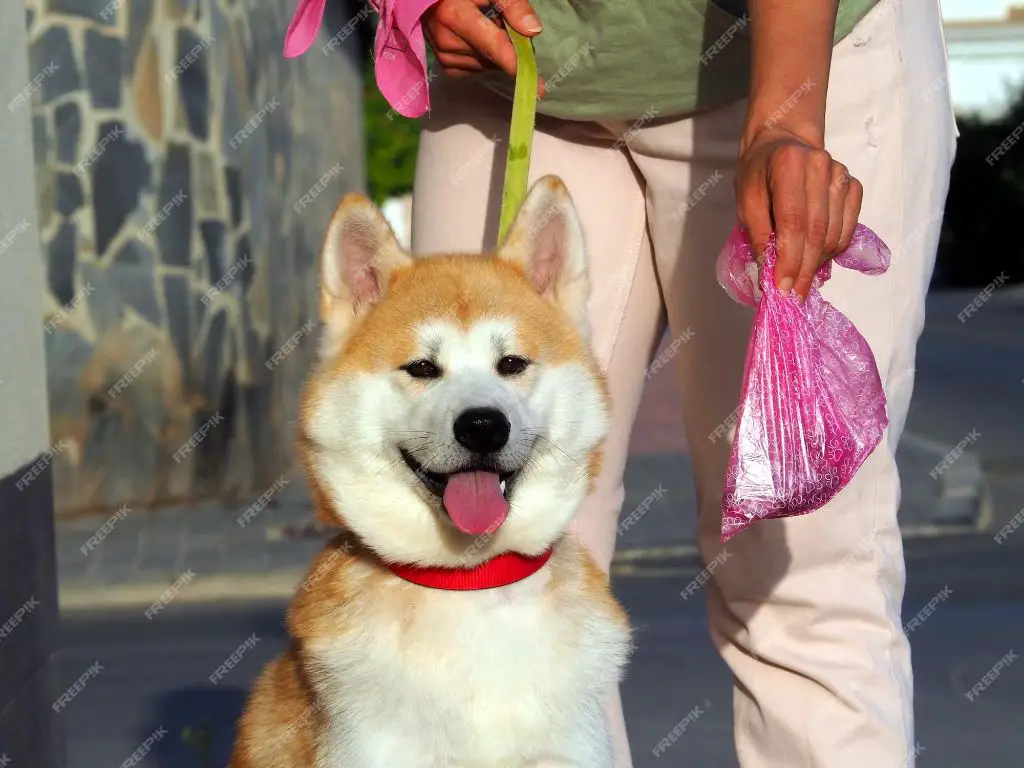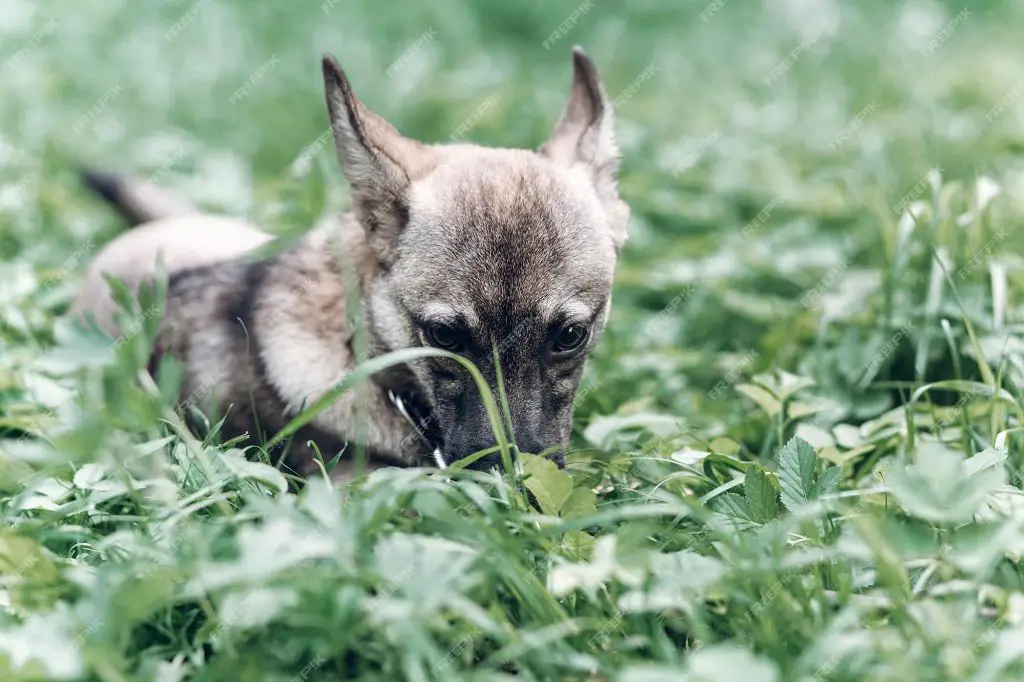Introduction
Finding grass or mucus in your dog’s poop can be alarming for any pet owner. However, these symptoms are more common than you may think. In fact, over 50% of dogs will experience episodes of mucus in their stool at some point in their lives (1). Though not always a cause for concern, noticing changes in your dog’s poop can serve as an important indicator of their overall health and digestion.
In this comprehensive guide, we’ll explore the causes of grass and mucus in dog poop. We’ll go over when you should be concerned, tips for diagnosis from your vet, potential treatments, prevention methods, and more. By the end, you’ll have a deeper understanding of what grass and mucus in dog stool can signify so you know how to best support your pup’s health.
Sources:

(1) https://www.pumpkin.care/blog/mucus-in-dog-poop/
What Causes Grass in Dog Poop?
It’s very common to see pieces or fragments of grass in a dog’s poop. This is normal, and there’s usually nothing to worry about if you notice grass in your dog’s stool. Dogs often eat grass, and the undigested blades will pass through their system and come out in the feces.
There are a few main reasons why dogs eat grass:
- Dogs naturally crave fiber and roughage as part of their omnivorous diet. Grass provides a good source of fiber. https://vcahospitals.com/know-your-pet/why-do-dogs-eat-grass
- Some dogs eat grass to induce vomiting when they have an upset stomach or to help relieve nausea. The grass may irritate the stomach lining, causing the dog to vomit. https://www.webmd.com/pets/dogs/why-do-dogs-eat-grass
- Eating grass is a normal dog behavior left over from their ancestral origins as wolves. Wolves in the wild would eat grass both for the fiber and to help them vomit up bones, fur, or other undesirable remnants of their prey.
- Dogs may eat grass when they have a nutritional deficiency in order to supplement their diet. For example, dogs may eat grass due to anemia from iron deficiency.
So in summary, seeing grass pieces in your dog’s poop is very common and generally harmless. It’s simply undigested fragments that have passed through after your dog grazed and ate some grass.
When Grass in Poop is Concerning
While dogs eating grass and passing it in their stool is often normal, an increase in the amount or frequency may be cause for concern. Significant changes from your dog’s regular bowel movements could indicate an underlying issue.
Excess grass in the stool, especially if it is undigested, may be a sign your dog is eating grass to relieve nausea and vomiting. Dogs sometimes eat grass to induce vomiting when their stomach is upset. Repeated vomiting along with grassy stool indicates your dog may have a more serious condition requiring attention.
Diarrhea containing grass could also be a problem. Frequent loose stools with undigested grass point to an issue with digestion and absorption. This could be caused by gastrointestinal issues, intestinal parasites, infections, food intolerances, or other conditions affecting the digestive tract.

If you notice any concerning symptoms along with increased grass in the stool such as vomiting, diarrhea, lack of appetite, or lethargy, it’s a good idea to call your veterinarian. Diagnosing the underlying cause will help determine the right treatment.
Mucus in Dog Poop
It’s normal for a little mucus to appear in a dog’s stool. Mucus is a slime-like substance that coats and lubricates the digestive tract, helping stool pass through smoothly. A small amount of mucus is not a cause for concern.
However, excessive mucus or an increase in mucus could signal an underlying issue. The most common cause is inflammation of the colon or large intestine, known as colitis. Colitis leads to overproduction of mucus in an attempt to soothe the intestinal inflammation. Colitis has numerous potential causes including:
- Parasites
- Food intolerances or allergies
- Bacterial infections
- Viruses
- Foreign objects
- Stress
Other possible reasons for increased mucus include Irritable Bowel Syndrome (IBS), Inflammatory Bowel Disease (IBD), or tumors in the colon. Mucus accompanied by blood or diarrhea warrants veterinary attention.
Mucus alone may not indicate a serious problem. However, if excessive mucus persists for more than 24 hours, becomes a common occurrence, or occurs alongside other symptoms, it’s best to consult a veterinarian. Proper diagnosis and treatment can provide relief and prevent prolonged discomfort.
When to See the Vet
In most cases, a small amount of grass or mucus in your dog’s stool is not a major cause for concern. However, there are some instances where you should take your dog to see the veterinarian:
- Persistent diarrhea or loose stools containing grass or mucus for more than 24-48 hours (1, 2)
- Vomiting in addition to observing grass or mucus in stool (2, 3)
- Signs of dehydration – dry gums, weakness, vomiting, not eating or drinking (1, 3)
- Blood present in the stool (1, 2)
- Difficulty or straining to defecate (1)
- Loss of appetite or lethargy (1, 3)
- Weight loss (1, 2)
- Grass and mucus accompanied by a foul smell (1, 3)
It’s recommended to see your vet if the symptoms persist beyond a day or two or if they are accompanied by concerning secondary symptoms. A quick exam and stool sample can help determine if treatment is needed.
Diagnosis by Vet
If a dog is experiencing recurrent or concerning instances of grass or mucus in their stool, a veterinarian can run tests to determine the underlying cause. Some common diagnostic tests include:
Fecal Tests
A veterinarian may take a stool sample and examine it under a microscope to look for parasites like giardia or worms that could cause intestinal inflammation leading to mucus production [1]. Fecal tests can also look for the presence of blood, fat, or other abnormalities.
Blood Work
Blood work including a complete blood count (CBC) and serum chemistries can check for signs of infection, inflammation, organ issues like liver or kidney disease, electrolyte imbalances, and other systemic problems.
Imaging
X-rays or ultrasound imaging of the abdomen may help identify intestinal obstructions, tumors, foreign bodies, or other issues that could contribute to excess mucus.
Potential Treatments
There are a few potential treatment options for dogs with mucus in their stool, including diet change, medications, and supplements.
One of the first steps vets usually recommend is changing the dog’s diet to see if it helps improve the mucus. This may involve switching protein sources, trying a hydrolyzed or novel protein diet, or feeding a bland diet like boiled chicken and rice for a few days. According to one source, dietary changes can help treat inflammation in the GI tract that may be causing mucus production (https://www.pumpkin.care/blog/mucus-in-dog-poop/).
Medications that vets may prescribe depend on the underlying cause. For example, if there is an intestinal infection, antibiotics may be used. Anti-inflammatory drugs like metronidazole may help reduce inflammation. If parasites are the issue, dewormers will be needed. Probiotics and supplements like pumpkin or psyllium may also be recommended to support healthy digestion.
With treatment from a vet to address the root cause and changes like diet, medication, or supplements, the mucus in a dog’s stool should clear up. It’s important to follow the vet’s recommendations to fully resolve the issue.
Home Remedies
There are several natural home remedies that may help soothe your dog’s stomach and improve their stool consistency if they are experiencing mucus.
Probiotics can help restore healthy gut flora and reduce inflammation. Look for a dog-specific probiotic supplement or give plain, unsweetened yogurt with live active cultures. Check with your vet on dosage.
Pumpkin is a good source of fiber that can firm up loose stools. Give 1 teaspoon per 10 pounds of your dog’s body weight, 1-2 times per day. Make sure it’s plain canned pumpkin, not pumpkin pie filling.
Bone broth provides hydration and nutrients for the GI tract. Use chicken or beef broth, ideally homemade and unsalted. Give 1-3 ounces per meal.
Always introduce home remedies gradually and monitor your dog’s symptoms. Seek veterinary advice if no improvement after 1-2 days.
Prevention
There are several ways to help prevent grass and mucus from appearing in your dog’s stool.
Monitor your dog’s diet and avoid sudden changes. Make sure your dog is not getting into anything they shouldn’t, like garbage or other dogs’ waste. Keep your lawn and yard clear of any hazardous materials. Gradually transition your dog to a new food over 5-7 days by mixing a little more of the new food each day.
Exercise your dog regularly, but don’t overdo it. Take note if strenuous exercise seems to cause symptoms. Give your dog plenty of fresh water before and after physical activity.
Reduce stress for your dog by providing a predictable routine, minimizing changes, and giving them their own safe space. Anxiety can upset your dog’s stomach. Stay calm if your dog has an accident to avoid shaming them.
Pick up stools promptly to prevent re-ingestion. Use a leash when walking to keep your dog from eating grass, dirt or feces. Be consistent about discouraging the habit.
Schedule an annual wellness visit with your vet. Discuss any concerns about your dog’s stools. Your vet can check for underlying issues and make diet recommendations.
Summary
Unusual items in a dog’s poop, like grass or mucus, can cause concern for pet owners. However, in many cases it is not a cause for alarm. Grass in dog poop is typically due to dogs grazing and eating grass. It usually passes through their system without issue. Mucus in the stool is often normal as well, especially if it is clear and the dog is acting normally otherwise.
However, sometimes grass or mucus in a dog’s stool can indicate an underlying health issue. Persistent diarrhea, blood or parasites in the stool, vomiting, or other concerning symptoms alongside grass or mucus are reasons to see the vet. Only a vet can diagnose and treat any potential gastrointestinal, dietary, or parasitic causes through a physical exam, fecal test, and treatment plan.
If your dog has grass or mucus in its stool, monitor for any other symptoms. Feed a bland diet for a day or two to soothe the GI tract. If the issue persists, make an appointment with your vet right away. Catching conditions early can help get your pup back to normal bowel movements and good health.